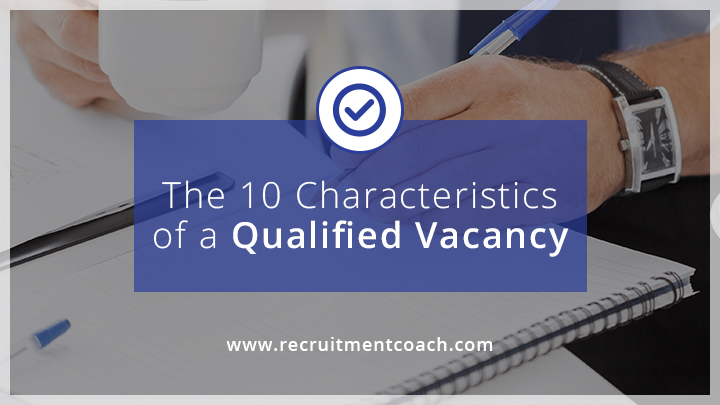As a recruiter, there are few things more frustrating than trying to recruit a candidate without having a clear and comprehensive understanding of the role you’re recruiting for.
While your preference is always to work directly with the hiring manager to understand the position firsthand, situations will arise where you need to negotiate the politics of working with the client’s Human Resources department and/or In-house Recruitment team.
[thrive_text_block color=”blue” headline=””]Note: If you’re approaching a brand new client, always contact the hiring manager first —there’s no need to go through HR if you have no prior relationship with them. It’s easier to beg forgiveness than to ask permission. [/thrive_text_block]
Think of a time when HR (or IR) has denied you access to a hiring manager. They told you all communication goes through them, and recruiters who violate that policy will be blacklisted.
The problem is that having access to the hiring manager is critical to your success. Without talking to the real decision-maker, you’ll deal with communication breakdowns, a loss of influence, a slower hiring process, and a search that could ultimately be a complete waste of your time.
The good news is that it’s possible to gain access to hiring managers without alienating HR, giving yourself the best opportunity to earn your placement fee. Here are my top three tips on how to work directly with hiring managers, while making HR your ally and not your enemy.
- Be Respectful: If you are working with an HR person, or Internal Recruiter, your initial conversation should clearly communicate your willingness to collaborate on the assignment with him or her. A friendly contact on the inside will pay dividends throughout the life of the recruiting process. If an HR person feels as if he or she has been sidelined or otherwise bypassed at crucial decision points, you’re going to find it even more difficult to get the information you need to do your job.
- Be Assumptive: Approach the assignment with the assumption that you will have access to the hiring manager from the start. Instead of asking permission from HR, be assumptive. Tell them that the next step in your recruitment process is to speak with the hiring manager—you can even invite the HR person to join the meeting. A natural way to approach this is to simply explain that your process involves getting buy-in and consensus from all stakeholders, so, in order to progress, you need to meet with the hiring manager to gain deeper insight into the nature and nuances of the role. Try saying this:
“Let’s arrange a conference call with the hiring manager so the three of us can work as a team to recruit the best person in the shortest time. I’m happy to hold while you check her/his availability.”
- Sell the Benefits: If you still get pushback from HR, it means they don’t understand how what you’re suggesting will benefit them. While you both want the same outcome, your motivation for sourcing and placing top talent is very different from theirs. So, give the HR person logically convincing reasons why your meeting the hiring manager is in their best interest. Try using the language below as you present your case.
- “I don’t want to waste your time, or mine, sending you the wrong people. The deeper my understanding of the role, department, and opportunity, the more effectively I can pre-qualify the candidates which means you’ll receive a stronger shortlist. Every candidate I refer will be relevant, suitable, and interested, so I’ll make you look good plus save you a ton of time.”
- “We don’t simply match keywords on a CV to those on the job spec. We take time getting to know both our clients and candidates as people to ensure the individuals we refer are right for position. Our rigorous selection process screens out those who are not a good fit for the company and team culture, resulting in fewer interviews per successful hire which will save you a lot of time.”
- “To recruit the best person, we’ll need to proactively target promising passive candidates — the top performers who aren’t looking for a new job. To capture their interest, we’ll storyboard the recruiting conversation and create a suite of marketing materials which present your opportunity in the best light and clearly communicate the benefits of working for your business. That requires the involvement of the hiring manager. Plus, I need to feel passionate about this opportunity myself before I can get other people interested.”
Whichever of these three arguments you use, close with this statement:
[pullquote align=”normal”]”In order for me to execute a successful search process, and recruit your ideal candidate, it’s essential that I speak with the hiring manager. What’s the best way for me to contact him/her?” [/pullquote]
Another approach that sometimes works is to ask the HR person lots of technical questions which you know they won’t be able to answer. Unfortunately, they often counter this tactic by telling you to email them your questions so they can forward them to the line manager, which further delays the process. That’s why my preference is to use a combination of the scripts above.
Our goal is always to build good working relationships with everyone involved in the hiring process, including Human Resources, Internal Recruitment and the relevant hiring manager. The table below gives some guidelines to help you achieve that.

Conclusion
There’s absolutely no reason for you to pour hours into this and not get paid, so if you still get stonewalled by HR, you may well decide at this point to walk away. The key is, just because they say no once, it doesn’t mean you can’t educate them and chip away at their resolve.
Start the change today by requesting, if not requiring, access to hiring managers. You’ll have a better chance of filling the job and earning your much-deserved fee, and you’ll find the whole process less frustrating and more satisfying.







